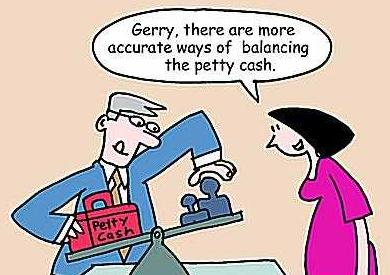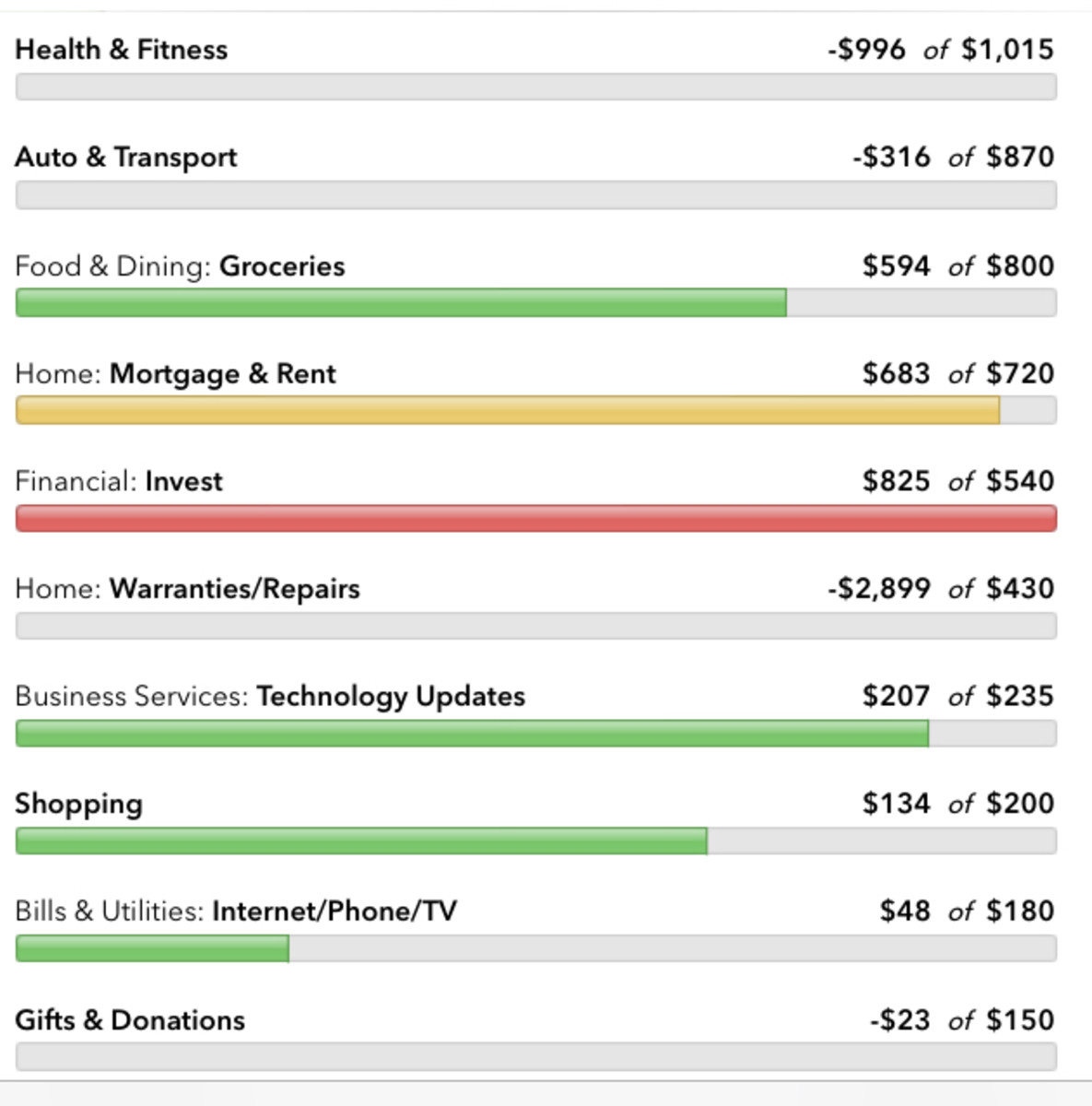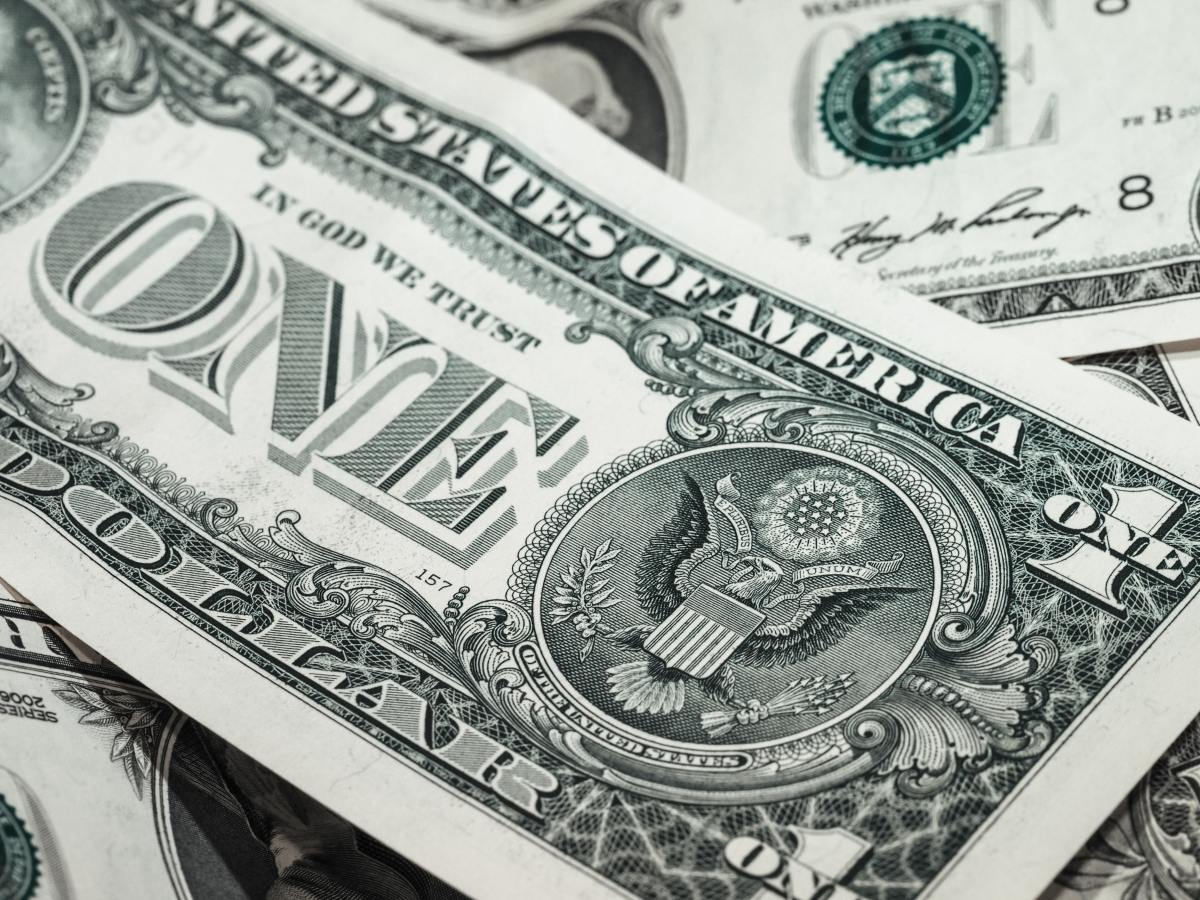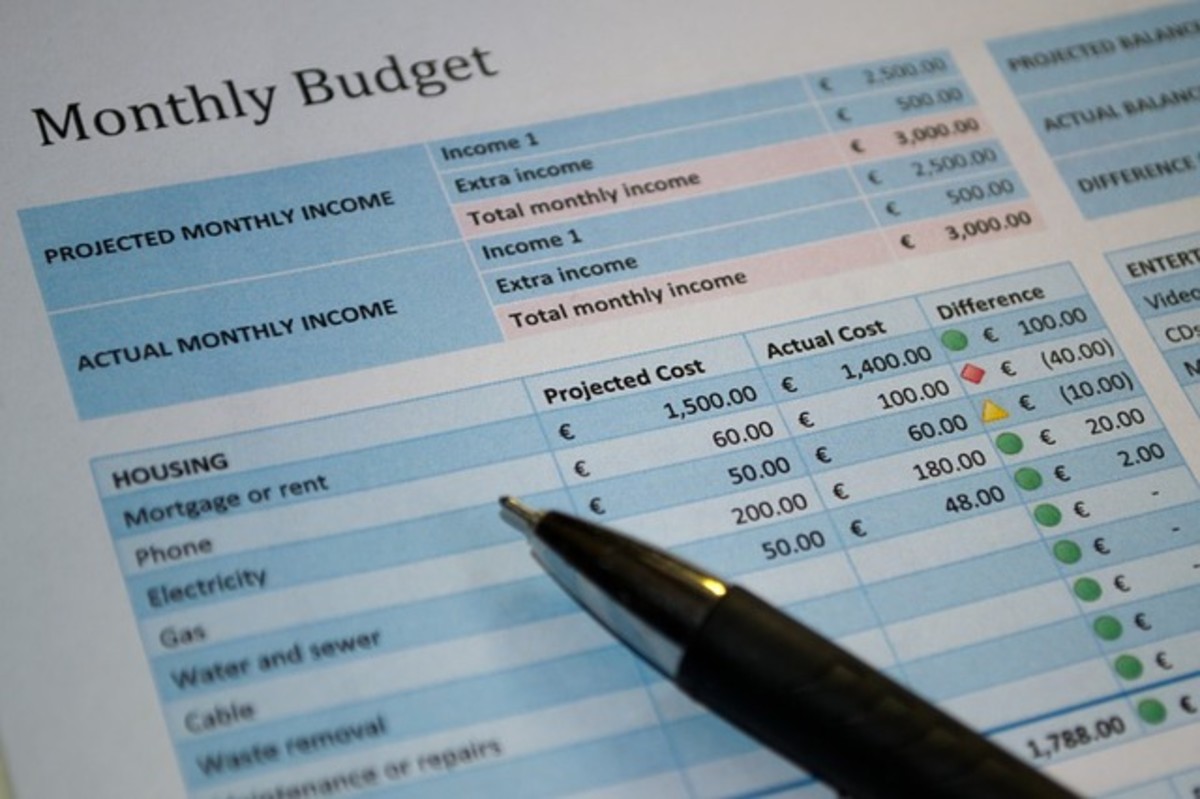Creating And Maintaining A Home Budget
I have been reading a few hubs lately on financial control and budgeting and thought I should put my two words of advice from my line of my specialty
Professional financial management and home financial management are two distinct and different roles, and I am sure it is better to leave the latter to your better half. In most cases, she would do a better job.
So you are loaded down with bills to pay each month and are wondering how you can begin a savings account for emergencies and other high-expense endeavors. In other words, where can you find that extra cash to put away for later?
Basically, like in all projects, the first step to avoiding financial debt is to create and maintain a monthly budget. It wouldn’t take much of your time and could be done on a holiday, once you have understood your spending pattern and needs that you can’t do without
So preferably get yourself a computer (a memo-pad would do just fine, but it is the computer age and why bother to keep on erasing out areas, when the computer automatically computes the whole spread-sheet, when you make a small change somewhere)
Okay, let’s get started
Make a list of all your monthly income and a list of all monthly expenses that come to mind.
When computing income, make sure to include all sources, be it part-time or full-time. Also include any other financial support that you may be receiving, even areas such as monthly interest or even alimony, retirement benefits or child support.
While calculating expenses, be sure to include house-rent or mortgage, approximate food expenditure, utility costs (electricity, water, telephone, cable, house maintenance, gas etc), transportation costs and other expenses that include eating out, entertainment, and mobile phones.
Items that you purchase for you and your family should be listed separately as this could vary on a monthly basis. Most of these are luxury items and these can be controlled, so please do not list them as a monthly expense factor.
To monitor the exact expense factor, it would be good, if you could sit down, every night, for a month and list all the expenses for that day. At the end of the month, you would have a more accurate breakdown of expenses. Try also maintaining a file with all the expense receipts.
Now comes the easy part – At the end of the month, just check by how much does your expenses exceed your income. If the figure is small, then I don’t think you would have to do much of a balance, but if the difference is quite large, then it’s time you cut down on spending, mate!
If you have a computer, you can also compute this and get the daily average on spending and income factor.
If it is a small discrepancy, you can reduce some minor expenses in areas like eating out, mobile costs or even entertainment costs. But if the deficit is a large one, then you have to sit down and downsize some big spenders, such as transportation and petrol costs and utility areas. With all the advantages that are evident from personal budgeting, it is no wonder that more and more people are relying on them to reduce debts and increase their savings. However, all ‘budgeters’ need to be careful to avoid some common pitfalls that appear often.
Credit cards may appear to be like small pieces of plastic; however they can cause a great deal of trouble for the owners. It is common for people to make unwise purchases, which they would have avoided otherwise and all because they had the credit card in their wallet. The best solution is to simply get rid of that card and begin paying only by cash, check, or debit cards. You may want to keep one card handy for emergencies, but it is probably best to keep it out of reach, and far away from your wallet.
Initially, it may seem difficult to limit spending and sticking to a budget, however there are a few practical changes that you can make everyday that will cut your spending more than you expect.
Firstly, try and alter your credit card spending pattern by paying cash whenever possible.
The advantage – You tend to avoid making a purchase unless you actually have the money available.
However, if you decide to make a credit card purchase, be prepared to pay the balance off monthly. This helps you save quite a bit of money by avoiding interest charges. If you already have a credit card, then transfer to a card with a low interest rate and also, find a card that does not charge an annual fee.
If your budget is a balanced one, in other words, your income just about covers all your expenses, then it is better that you start a saving plan. You can also add an additional income from your savings to your next month’s income budget.
Start Saving!
When planning your budget, plan for your savings first. You will grow richer each month if you begin to pay yourself first. Before paying any bills, decide on a set amount that you will pay yourself first—maybe five or ten percent—or whatever you decide—of your paycheck. Then, deposit the amount into a savings account before paying any bills.
When you do this at the beginning of the month, your entire paycheck will not suddenly slip through your fingers. If you wait until the end of the month, there may be nothing left to save. Paying yourself first will give you a systematic way to make your money grow. Regardless of your profession or your income, this system will work if you stick to it.
This is another technique, my mum taught me while at college and it is useful for generating small change. What you got to do is to empty all your lose change into an empty can or a box at the end of each day. At the end of the month, roll the coins and convert them to notes and put them into another box, your savings box. There are chances that you would easily be able to save around 100 dollars (it can be any currency) in lose change each month.
Ofcourse, any saving is a bonus which can be used at a later date. If you are going to use the savings from a previous month to spend in the following month, then you actually are not saving anything, but instead, you are just increasing your spending plan.
Don’t panic or think that good money management is some weird mathematical formula. The whole objective of a good budget is to make your money go the farthest in helping you reach your goals. It just is not there to force to you to abide by rules and your money management plan is always subject to change if your life situation changes.
There are so many areas savings could be channeled to – so try not to use them.
Also try and make the kids set an income and expense plan of their own – this makes budgeting a lot easier. Help them earn a bit and allow them to spend from their earnings. This doesn’t mean doing anything indecent or getting involved in something shady. There are so many opportunities in the internet that they can avail of. Basically, teach them to spend wisely, while saving at the same time. It is better that they have independent bank accounts and teach them to use that. However, no credit cards.
If you are able to save, it can even free up extra money for things such as vacations or college funds for your children.
In addition, always have an emergency fund to hand to handle unforeseen expenses (accident or medical expenses). Also you can add new categories such as debt reduction plans and even retirement savings as this category can damage your budget. In other words, try not to use credit.
There are several advantages to sticking to your budget and sticking to your financial goals, be it a vacation, or even a new car.
Cutting Back on Spending
Mentioned below are few tips that I was forced to do during the early stages.
Another tip is to pack your lunch everyday. All of those lunch hours spent at restaurants will add up. Bringing your own lunch can save you several dollars every day, which will add up over time.
Use your cell phone during off peak hours. (We didn’t have cell-phone those days, hence this is a new addition). Some people will spend a couple hundred dollars a month on phone charges. Avoid this by making most calls during off peak times. Check with your service and plan to find out when you have cheaper or unlimited calls.
Stop throwing away Sunday newspapers, before going through the classified section and other advertisements. Clip some of those coupons and check out the sales. This may seem tedious, but the savings are often worth it. Many stores will double or triple the amount of the coupon. This can save you up to 20 or 30 dollars each time you head to the food store.
Refinancing - Mortgage rates have been extremely low over the recent years and hence this would be a good chance to reduce the monthly house payment by a significant amount. If you are planning to have your house paid off prior to retirement, then you may want to factor this in before refinancing.
Insurance - Bundle your insurance as many insurance companies will offer their customers lower rates if they purchase multiple policies. For instance, some people use the same agent for multiple cars, and others combine their cars and house.
Always keep in mind that a dollar here and there would really begin to add up. Also avoid the thought that changing your spending habits is not going to save you much money. You will be surprised, when it starts doing so.
Another problem with budgeting is impatience. You may plan a budget and even set financial goals, but generally due to impatience, a savings program cannot be achieved. For instance, an individual begins setting aside some for a new car. However, after a few months they discover the car of their dreams and rather than waiting, they make the purchase. This could pose some serious financial strains.
Discipline is a must to prevent impatience from breaking your budget.
Once a person makes a budget, they often fail to adjust it when necessary. A budget is created using a set of expenses and income figures that are liable to change. As these figures change, it is important that the budget also changes to reflect the adjustments. This is an important factor as it could give rise to some major deficits, if not attended to in time.
Of course many people do not consider budgeting for holidays while creating a budget. Hence, sufficient funds may not be available for presents, food, entertainment and other holiday expenses. These items should be factored in and saved for throughout the year.
Finally, many people include transportation and accommodations for vacations in their budget, but they underestimate money needed for food, entertainment, and spending money. Keep in mind that all the resorts and tourists areas are double or triple what you would normally pay.
Impulse Spending
Answer these questions truthfully;
1.) Does your spouse or partner complain that you spend too much money?
2.) Are you surprised each month when your credit card bill arrives at how much more you charged than you thought you had?
3.) Do you have more shoes and clothes in your closet than you could ever possibly wear?
4.) Do you own every new gadget before it has time to collect dust on a retailer’s shelf?
5.) Do you buy things you didn’t know you wanted until you saw them on display in a store?
If you answered “yes” to at least two of the above questions, then you are an impulse spender and it’s time you indulge yourself in some retail therapy.
This is not a good thing. It will prevent you from saving for the important things like a house, a new car, a vacation or retirement. You must set some financial goals and resist spending money on items that really don’t matter in the long run.
Impulse spending will not only put a strain on your finances but your relationships, as well. To overcome this problem, the first and important thing is to learn how to separate your immediate needs from your must wants.
Advertisers blitz us hawking their products at us 24/7. The trick is to give yourself a cooling-off period before you buy anything that you have not planned for.
Avoid Spending Pitfalls
When you go shopping, make a list and take only enough cash to pay for what you have planned to buy. Leave your credit cards at home.
If you think that you really need something or an item, try and give yourself a minimum of two weeks to decide whether it is possible to do without it, or whether it is something that is a must want. By following this simple solution, you will mend your financial fences and your relationships.
Easy Money Savers
Now these are tips, my mum has taught me and I have put it to good use.
Always try to utilize maximum use of a product. In other words, turn bottles upside down and drain to get the last bit from them before running out to buy more. You’ll be surprised at how much there really is left!
To save some cash, you can make use of some of the items that may be lying unused at your house. In other words, instead of spending lots of money on the fancy floor cleaners, try using ammonia. It does a great job, and you can use plain water in between times. If your furniture needs some polishing, mix equal parts of white vinegar and vegetable oil and rub on the furniture. Buff with a cloth until it shines.
Also, never use more than you need. Just because it says on the box that you need a full cup, doesn’t mean that you really need it. Half a measure of laundry detergent and a half teaspoon of dish soap are examples of what are usually enough, rather than what the manufacturer says.
For a freezer bag, use empty chip bags and close with masking taps. Also try a bowl with a lid, such as a margarine tub.
To save some money on laundry, dissolve a bar of hand-soap in water to replace laundry detergent. Add three gallons of hot water, mix thoroughly and add a cup of washing soda. Sure, these are small changes, but added up; they can put some extra change into your pocket throughout the year!
Now, let me tell you that I had used these tips, not with the intention of saving any money, but had little choice as there was nothing available. But since it served the purpose, I realized later that I had also saved some money in the process.
Don’t get disappointed or even discouraged should the budget plan fails or does not work. In fact, don’t even expect to have a perfectly balanced budget within a month. These things take time and it would take at least three months, before you see some savings, as you have begun to understand the spending pattern. A budget may require constant revisions and editing, until it fits your needs. Then, make a habit to review it often, and ensure that you are making best use of every penny! Because we know how helpful those spare pennies can be!
A budget can help people save money to make these goals a reality. Additionally, many people are crushed under heavy consumer debt. Without a closely controlled pattern of spending, it becomes practically impossible to make much headway in reducing debt.
A personal budget will also provide the necessary infrastructure to begin do away with inflated account balances.
If planned and implement well, a budget will allow a person to not only meet their expenses, but also place money into savings and even pay back outstanding debts. Therefore, it is for anyone’s best interest to create and implementing a budget.
With a budget and some little planning, you’ll be on your way to saving more money than you ever thought possible!










